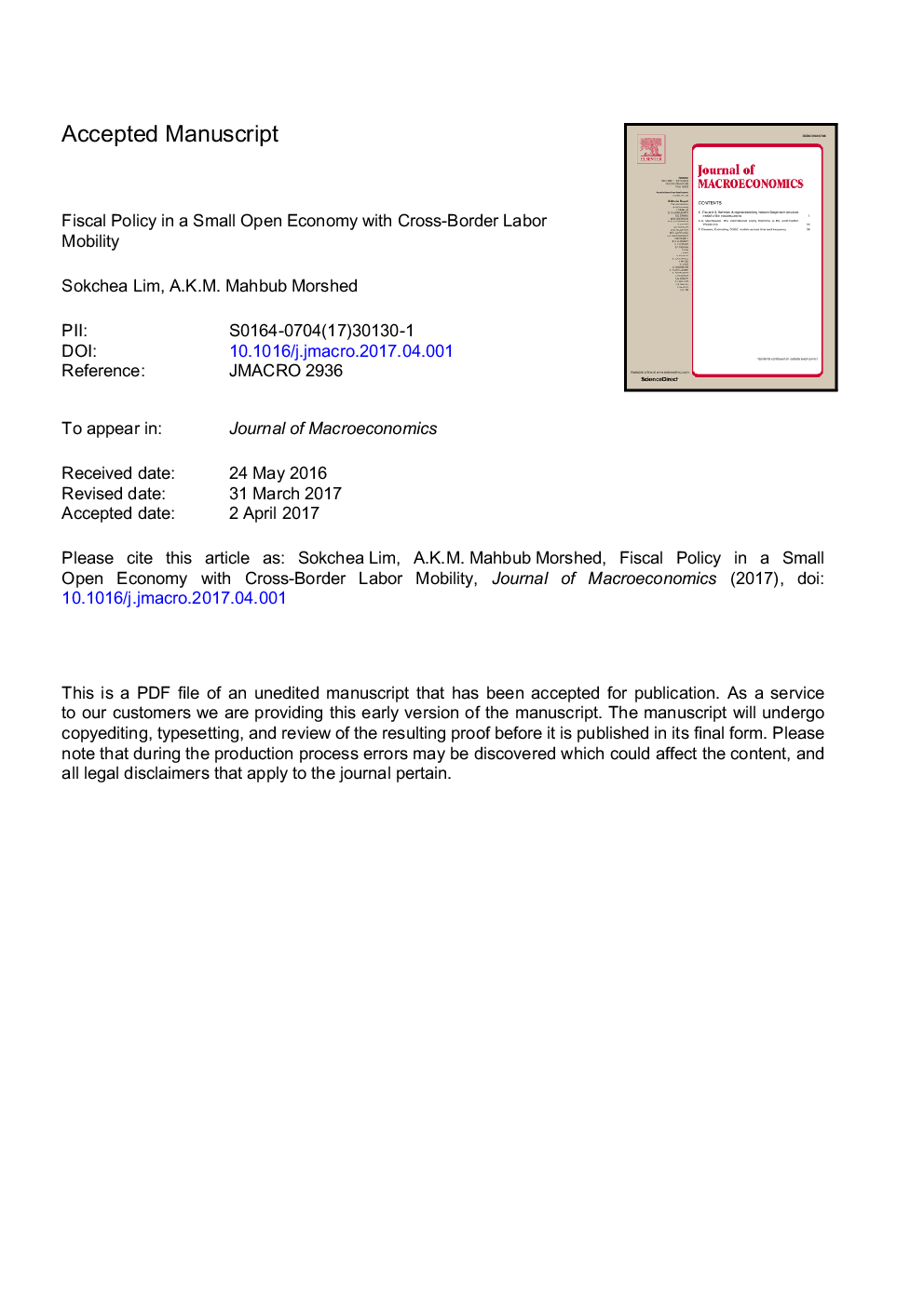| Article ID | Journal | Published Year | Pages | File Type |
|---|---|---|---|---|
| 5101291 | Journal of Macroeconomics | 2017 | 66 Pages |
Abstract
The large and stable inflow of workers' remittances through formal financial channels to developing countries prompted authorities to harness fiscal resources from this flow. This paper develops a macro-dynamic model of a small open economy with cross-border labor mobility emphasizing fiscal policy. The flow of remittances is the result of a household's optimizing decision to migrate. We examine the macroeconomic responses to fiscal policies. First, we show that an economy with international migration is more resilient to demand shocks resulting from fiscal contraction. Second, the short-run association between remittances and domestic output depends on the sources of the shocks. Third, our results indicate that the equilibrium impact of a tax on remittances can be expansionary and welfare-improving when an economy is initially close to full employment. The presence of utility-enhancing government expenditure and a potential negative externality from over-allocation of labor abroad (over migration) justify the presence of distortionary taxes.
Keywords
Related Topics
Social Sciences and Humanities
Economics, Econometrics and Finance
Economics and Econometrics
Authors
Sokchea Lim, A.K.M. Mahbub Morshed,
